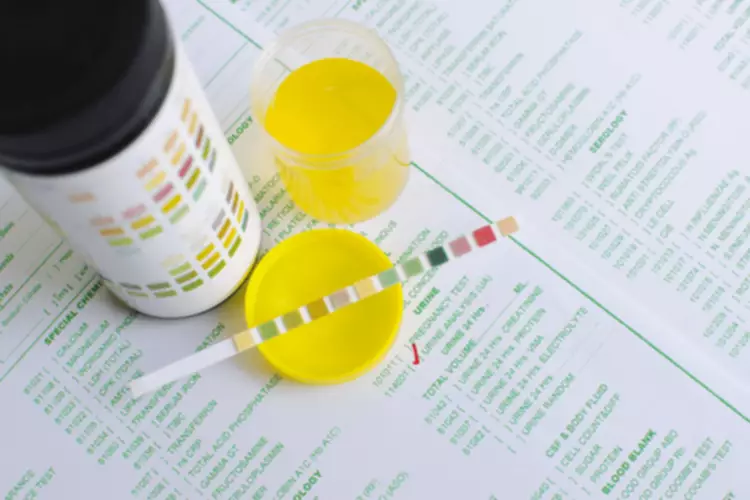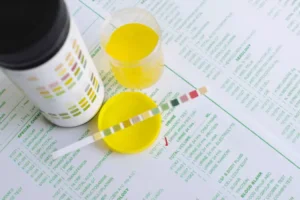Young women are challenging the stigma of sex and love addiction support groups Health News Florida

Compulsive behaviors and the need for rapid reward are likely to surface and intensify as the substance use disorder progresses. Even when an individual detoxifies from a substance, the reward system in the brain can remain changed for a long period of time. The pathway to healing and recovery is often a journey that can progress over multiple years.
Clean: Overcoming Addiction and Ending America’s Greatest Tragedy
But it’s critical to remember, said Vare, that everyone in these rooms shares a common problem. It still isn’t easy to start showing up at sex and love addiction meetings, Vare said. “One time, I was on Tinder numbing my feelings away and I told this dude that I matched with, ‘Hey, I shouldn’t be on here. I am a love and seggs addict,” said another Tiktoker with the handle Stephanie Rey, using internet slang for sex. For example, scolding, nagging, and arguing can be seen as enabling because we’re giving our loved ones a distraction, a reason to believe that we—not the addiction—are the problem. The question of enabling gets downright murky when it comes to deciding whether to allow an addicted child to live at home or when grandchildren are involved.
Articles Related to Drug and Alcohol Addiction Treatment
We’ll explore six common challenges while also offering support, validation, and a path toward healing. With hard work, patience, and love (for yourself and others), reconnecting with the people you care about most and building new, stronger relationships is totally possible. If you need further help or support during the relationship recovery process, consider speaking with an individual, family, or couples therapist. “They can also begin to rebuild trust with their partner through this process, which involves increasing transparency and honesty, as well as taking steps to build healthier behaviors,” she adds. For the person living with SUD who feels rejected, Green notes that this isolation can make it more challenging to receive the emotional support needed during recovery. Experiencing feelings of fear, worry and anger are understandable and normal for someone on the sidelines trying to support a loved one.
- I wish this book had been around when my wife and I were trying to figure out how to handle our son’s addiction.
- If you’re recovering from substance use disorder (SUD) or you love someone who is, you know just how challenging it can be to heal the harm that may have occurred.
- Alcohol or substance dependency can be a destructive illness that keeps someone from living the life they want.
- Seeking help from therapy or support groups can be very helpful in dealing with communication problems.
- Codependency occurs when one person enables the addictive behavior of the other.
Take care of yourself, too
- By refusing to enable destructive behavior, you can encourage them to seek help and take responsibility for their recovery.
- It can help improve communication, identify and address relationship issues, and provide tools and strategies for supporting the recovery journey of both individuals in the relationship.
- Comprehensive programs now address the physical, emotional, and social aspects of addiction, reducing stigma and offering hope for recovery.
Rebuilding lost trust can be a priority when repairing connections during recovery. It’s natural to get frustrated with your loved one when you see them doing something that’s harmful to their health. For your own well-being, you may occasionally need to limit your contact if that person is actively using substances or alcohol. There are some steps you can take once you have decided the time has come to let go of an addict you love. There’s very little you can do, and you certainly can’t fix the person.
How to Help an Addict by Detaching with Love

Families facing these and other heart-wrenching situations can loving an addict benefit from the support of an addiction specialist. Shame is having negative beliefs about yourself and your self-worth. People in recovery can experience a lot of shame simply for having become addicted in the first place.

You may want to speak with an alcohol and addictions counselor about your questions and how to introduce your new partner’s past life to your family. Parents, siblings and others care about you and want what’s best for you. They may look unfavorably on your relationship with a recovering addict until they understand the nature of addiction and the promise of recovery. For those dating someone in recovery, think of this list of 10 things you need to know about loving an addict in recovery as your guide to understanding your partner.
How to Help Someone Quit Drugs Coping with a Loved One’s Drug Addiction

You have to try and work on letting go of those feelings and taking care of yourself while moving forward. You may come to a point in your life where you have to let go of an addict you love. This is often after they’ve refused treatment, or continued to use drugs despite your attempts to create boundaries and consequences. Private sessions typically follow a skills-based format, in which caregivers learn more about how to deal with destructive thoughts and habits developed during years of addictive behavior. They might learn to meditate to handle stress, or they might work on assertiveness skills.
- Drugs such as alcohol or opioids can cause dramatic physical withdrawal symptoms that are often dangerous if left untreated.
- Addiction is so stigmatized in our society that people with this type of disorder often expect others to criticize, insult, belittle, and reject them—which can be a barrier to their recovery.
- There’s very little you can do, and you certainly can’t fix the person.
Graduate School of Addiction Studies

Understanding that addiction is not a choice might help you let go of anger and resentment you may be feeling about your loved one’s addiction. Going back to rehab should not be considered a failure, but rather an act of courage. The person realized the dangers of falling back into addiction and valued their life enough to make a positive change. Though it may seem difficult, the relapse can be seen as a learning opportunity that can strengthen recovery. The person needs to understand what triggered the relapse and develop a plan for preventing another one. If your partner is still actively engaged in drug or alcohol use, it can have significant negative effects on your well-being and the relationship.

No Comments